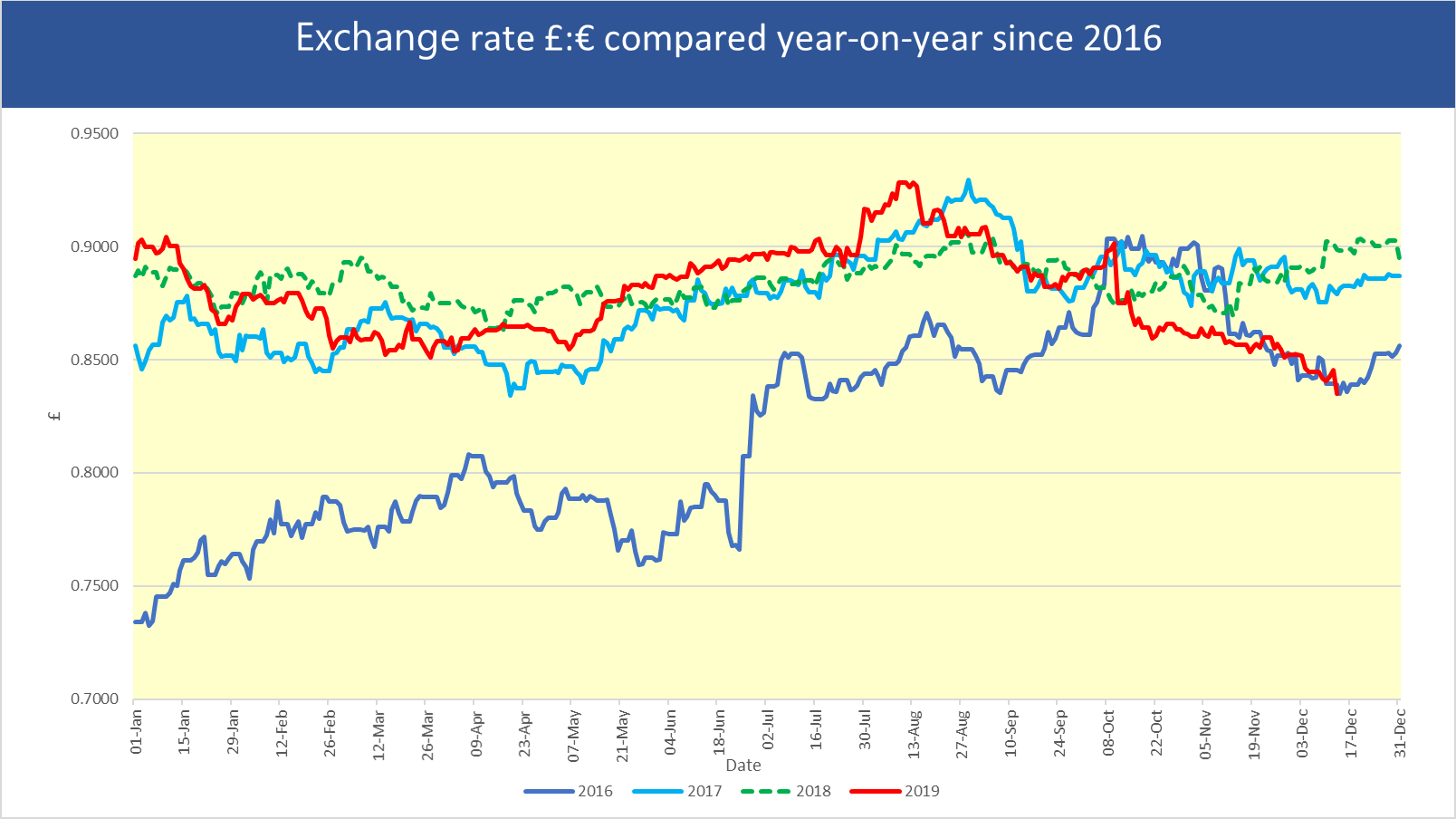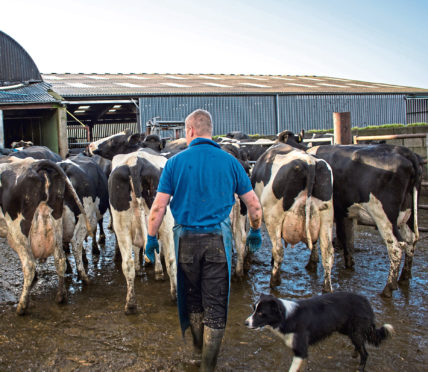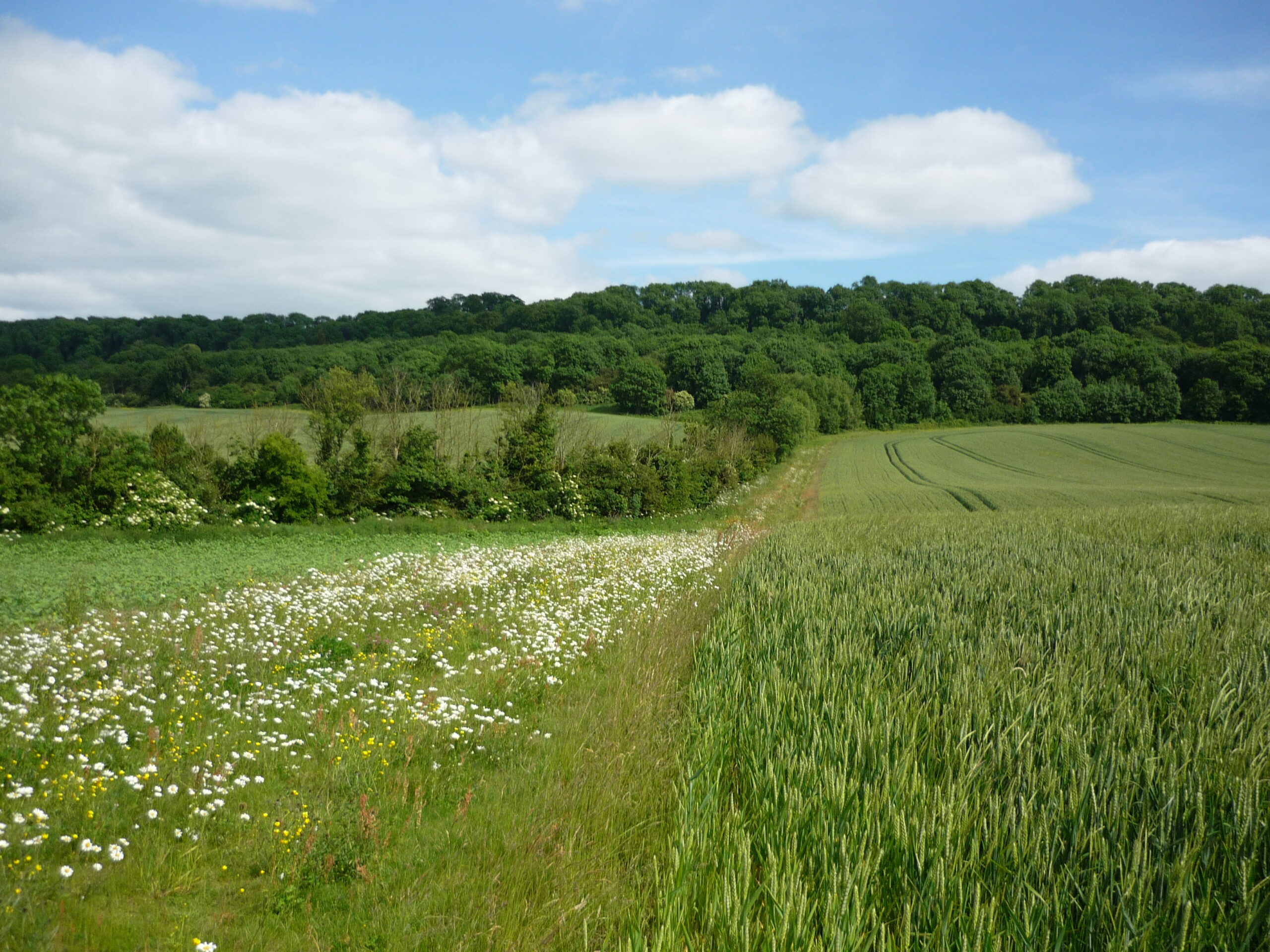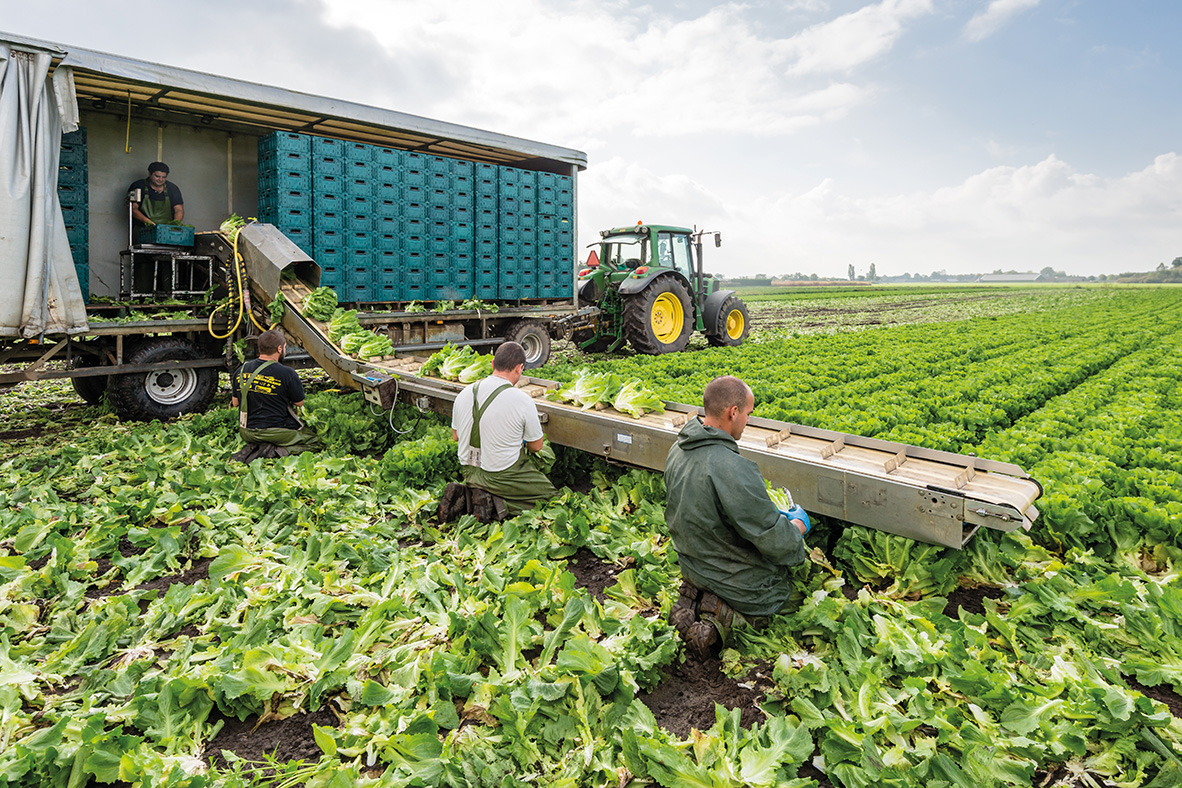Following the General Election on 12th December 2019 which heralded another Conservative administration the Pound has strengthened to £0.83 to the €1 (or £1 = €1.20). It has since lost most of these gains as the market worries about the prospect of no or a very limited trade deal at the end of the Transition Period (see other article).
This continues the trend of fluctuating exchange rates seen since the Referendum on EU membership in June 2016. Following the Brexit vote, Sterling immediately weakened against the Euro as shown in the chart below. It then traded largely in a range of €1=85p-90p (£1 = €1.11-€1.18) varying, to a large extend, on the latest political developments. The Pound reached its lowest point in August 2017 at £0.93 and the strongest being the 19th April 2017 at £0.834. The second strongest exchange rate against the Euro since April 2017 was recorded after the recent Election result on 13th December 2019 at £0.835.
Oddly, a broadly similar trend can be seen in 2017, 2018 and 2019, with a weakening of Sterling from the late spring through to the summer and then some recovery thereafter. Why this should be is not entirely clear.

But what does this mean for farmers? When the Pound is weak (closer in value to the Euro) imports become dearer and our exports become more competitive (when the Pound is strong the opposite occurs). To illustrate this, a key UK farming export, lamb can be used. Assume a standard new season lamb is sold to an EU country at the current average price of 191.7p per kg and it weighs 39kg = £74.76.
Exchange rate A = £0.93 : € 1 Weak Pound
Exchange rate B= £0.84 : € 1 Strong Pound
With exchange rate A the lamb would cost an EU country £74.76 / £0.93 = €80.4 per lamb
Exchange rate B would the lamb would cost an EU country £74.76 / £0.84 = €89.0 per lamb
Although the difference in exchange rate is only £0.09, the lamb would cost a customer in an EU country €8.60 more with Exchange rate B, for the same product. Thus the Strong Pound seen in exchange rate B is not beneficial to the UK farmer, making our exports to Europe more expensive. Customers in Europe will look to other suppliers to receive better prices, reduce their demand in the face of higher prices, or negotiate to hold prices in Euro terms, which translates into a reduced Sterling value.
Conversely, a strong Sterling helps UK farmers if they are importing goods from EU countries as they are able to buy more with each of their Pounds. This is quite important in the horticulture sector, for example, where a lot of plant material is purchased from Europe (notably the Netherlands).
It is unlikely that volatility in the currency market will reduce during 2020, at least not until the situation around the Future Relationship talks becomes clearer. If this looks like being resolved satisfactorily, then Sterling is likely to definitively strengthen – perversely, this would then be negative for farming in the short term.










